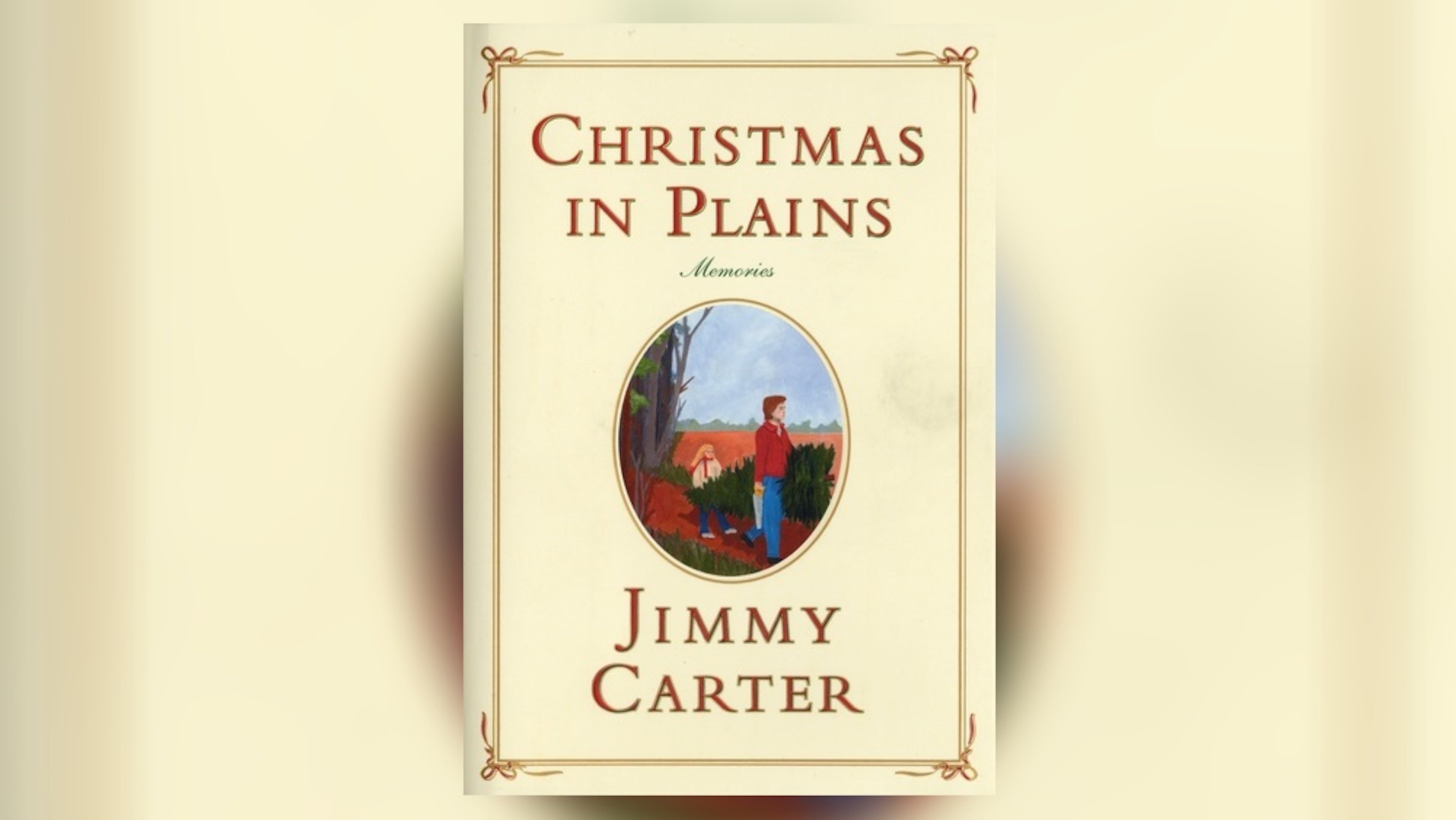Christmas book takes Jimmy Carter back to basics

One of Jimmy Carter’s favorite cartoons appeared about a year ago in The New Yorker. A little boy is looking up at his father and saying, “When I grow up, I want to be a former president.”
Not that being a former president is an easy job. Since leaving office more than two decades ago, Carter has maintained a daunting schedule. He has worked tirelessly for world peace through projects at the Carter Center, monitored elections in troubled countries, helped build houses for Habitat for Humanity, and written 16 books. Ten of these, including his recent memoir, “An Hour Before Daylight,” have been best sellers.
His latest work, “Christmas in Plains” (Simon & Schuster, $20), is a charming account of an era when family rituals and fellowship meant more than expensive gifts. The Carter children usually received presents of clothing, books, fruit and candy, with an occasional special gift of an air rifle or bicycle.
“The celebration of Christmas during these times was quite different from what we know today,” Carter writes, “much more frugal, but with a degree of personal intimacy that brings back warm recollections.”
I would say the little town of Plains and Christmas are two things that have never changed and that have remained a focal point.
Most of the Christmases were joyous, but Carter also recalls the 1979 holiday when American hostages were being held in Iran. That was the first year since World War II that there were no lights on the national tree except for a single Star of Hope on top.
At Amy Carter’s suggestion, two busloads of White House staffers were brought to Camp David on Christmas to have a turkey dinner and spend the day.
“Their visit had turned our potentially lonely Christmas Day into one that we would never forget,” Carter says.
The 77-year-old former president talked about other Christmas memories in an interview.
Q: Why did you decide to write a book about Christmas?
A: I wanted to fill out some things about my life after I went off to college. This was an opportunity to say some things I hadn’t said before. We have so many changing concepts in our lives, there are certain principles or ideals that never change. That is the core around which our existence is formed. I would say the little town of Plains and Christmas are two things that have never changed and that have remained a focal point.

Q: How did you unearth so many details about Christmases past?
A: One of the things I did was to bring seven black friends from my childhood in Archery to my home to have supper and talk. We spent hours remembering what we did together and what they did separately at their church and school. A couple of weeks later, I invited some white friends from Plains to talk about things they remembered. Other memories of Christmases after I got married were brought back by talking to Rosalynn and the children.
Q: Those early Christmases were relatively frugal, weren’t they? I understand some of the kids got only an apple, an orange and some dried raisins with seeds.
A: Yes, they were for some people, but even then we realized that our particular family was better off than the sharecroppers and day laborers around us. What we got was so much better than what they got, but my black playmates and I shared my gifts as though they were half theirs.
Q: Is writing a joy for you, or is it hard work?
A: It’s really a joy. On the days that I’m home, which is a third of the time, I get up at 5 in the morning and write. At 8, I get on the Internet and the phone and start doing my business at the Carter Center. I also have enjoyed going back to college to learn how to write better. Miller Williams, a professor at the University of Arkansas, helped me with my poetry. Now I’m in the process of writing a long historical novel, my first fiction. It’s about the Revolutionary War in Georgia, South Carolina and Florida. I don’t want to talk to any publishers about it until I get it done.
Q: By the way, the recipe for your father’s eggnog that you included in “Christmas in Plains” sounds delicious, but I thought Baptists didn’t drink.
A: (Laughs.) Well, most of them didn’t drink in public.

